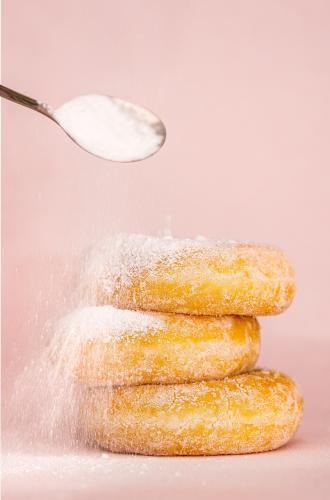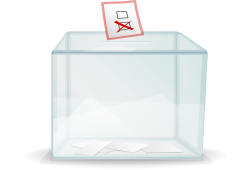
The wild run of the Donald Trump brigade in the United States is already bringing negative fallouts: the US economy contracted in the first quarter of 2025, tourist arrivals are reported dramatically down, and Elon Musk’s chainsaw has effectively crippled many wings of the US government as more departments are downsized or eliminated. But amid this whirlwind not seen in 100 years, something good appears to have emerged from the controversial US Secretary of Health and Human Services, Robert F. Kennedy, Jr. Last fortnight, Kennedy uttered three simple words: “sugar is poison”.
The free ride that these food giants have had, enriching themselves and their shareholders at the cost of ordinary people, must end
And he set out his agenda to check its use in products sold by the big food companies. “Four years from now, we are going to have most of these products off the market, or you will know about them when you go to the grocery store,” the Health Secretary said.
This is a dramatic and significant change, wholly positive and clearly the right step but it comes from a “wrong” person -- one who is otherwise a conspiracy theorist, is known for anti-scientific beliefs and rants against vaccines. The medical and research fraternity argues that he will eventually harm health outcomes and increase vaccine-hesitancy among the population, making it challenging to fight disease – a Health Secretary against health. But Kennedy also has a large and positive agenda against ‘Big Food’ (and ‘Big Pharma’) companies selling sodas and sweetened packaged products that are known to be addictive and responsible for the obesity and diabetes epidemic in America, where 38% of children, he says, are already diabetic or prediabetic.
If globalisation brought manufacturing jobs to China and a software services boom to India, it also brought to these populations a new push on sugar and high fructose corn syrup loaded sodas, chips, cupcakes and a host of packaged food that along with other claimed lifestyle conveniences has become the ticking time bomb on health
There are many aspects to this change, but the notable one is that most of the sugar infusion in food stuff has spread across the globe and certainly into India, from its roots in American food design, packaging and marketing.
If globalisation brought manufacturing jobs to China and a software services boom to India, it also brought to these populations a new push on sugar and high fructose corn syrup loaded sodas, chips, cupcakes and a host of packaged food that along with other claimed lifestyle conveniences has become the ticking time bomb on health. It is notable that RFK Jr. talks of “food and food-like substances” because it can be argued that much of what is sold as packaged food is food-like but not food at all.
Habits were sought to be changed from hot Indian food to unhealthy packaged products
We have seen it happen over and over again in India, where new awareness and some activism against the giants is finding root.
Consider this: soon after the Indian economy was liberalised, a global foods giant launched cornflakes as the breakfast they said should be preferred by Indians. The introduction was supported by a heavy spend of advertising dollars, with promos that invited Indians to reject traditional hot breakfasts like kulchas, samosas or idlis, and switch to the new launch, an alternative presented as simple to use, tasty and healthful.
Even today, many prominent food and drink brands in India carry ingredients suspect in themselves, and often in quantities that would not be allowed in several developed economies
The same company soon introduced many variants of its breakfast cereals, in shapes, shades and colours, sprinkled with frosty dust, attractively presented as red, blue and brown – all with levels of sugar and colour that would be considered anything but healthy. Habits were sought to be changed from hot Indian food to unhealthy packaged products.
The example here is just one of many food product companies that have pushed sugar, artificial colour and an assortment of additives into their products, then pressed on the marketing pedal and over time succeeded in building businesses at the cost of the health of ordinary Indians, many among the target audience being children. One multinational giant, among the oldest operating in the country, once tried to introduce jam as “brain food”, till it was stopped by a regulator from making that fanciful claim.
A part of the problem is lax regulations in India, combined with a weak if not dysfunctional FSSAI system
Even today, many prominent food and drink brands in India carry ingredients suspect in themselves, and often in quantities that would not be allowed in several developed economies. Many Indian brands are huge violators but reputed, globally recognised and heavily marketed international brands can be worse, given their scale and reach.
Social media campaigns have highlighted many of these ‘India’ versus the ‘Rest of the World’ match-up list of ingredients, and it often is a case of brands getting away with more sugar and various and sometimes dangerous chemicalised inputs in India while steering clear of these in other markets.
Combine this with the relative lack of awareness of Indian consumers and the challenges of holding brands to account not only for the ingredients but also for what is said on packaging and in advertising
A part of the problem is lax regulations in India, combined with a weak if not dysfunctional Food Safety and Standards Authority of India (FSSAI) system that brings all the problems of lack of capacity, transparency, oversight and a host of other challenges leading to poor enforcement. The size of the Indian opportunity in itself is a problem because brands will do anything to dig in for the prize and usually find success if their time horizons are not too short.
Combine this with the relative lack of awareness of Indian consumers (until recently) and the challenges of holding brands to account not only for the ingredients but also for what is said on packaging and in advertising – with claims of delivering healthier, sharper, smarter outcomes, or some variant thereof, quite routinely thrown in.
There should be no space for flavour, colour, dyes or other additives to food. Salt should be in check. Sugar can be taxed
A lot of this work feeds into marketing literature – of how a brand succeeded against “odds” or how a “strategy” failed and was turned, thus marking down the moral dimension of the issues at stake and celebrating instead the limited and narrow playbook of marketing.
A big challenge to the food companies in America, led by an overconfident, overzealous administration, bulldozing change in the face of powerful food lobbies that will not bow easily, will hopefully bring in a new era of honest food with companies being made to pay dearly for feeding sugar to sell more. There should be no space for flavour, colour, dyes or other additives to food. Salt should be in check. Sugar can be taxed.
The free ride that these food giants have had, enriching themselves and their shareholders at the cost of ordinary people, must end. If the Trump administration helps deliver even a bit of this, that will be one good outcome to celebrate in an era that otherwise looks rather dark.







